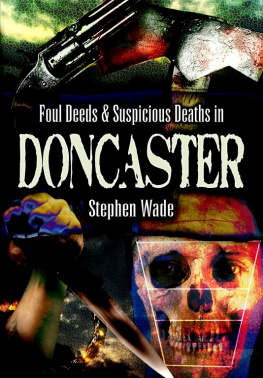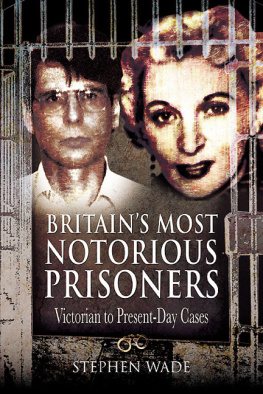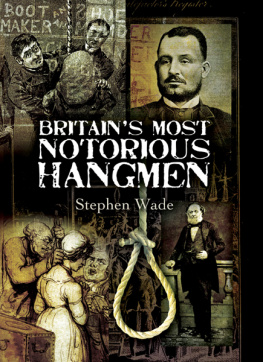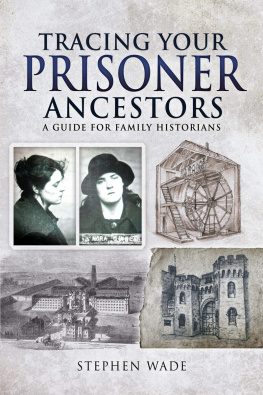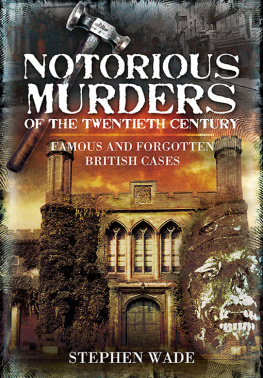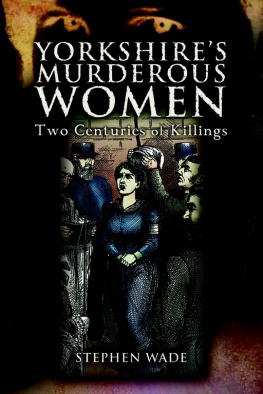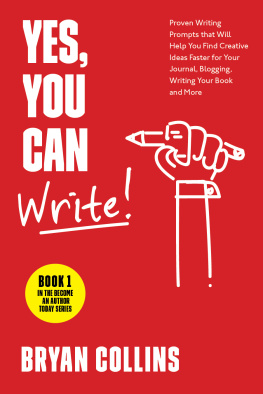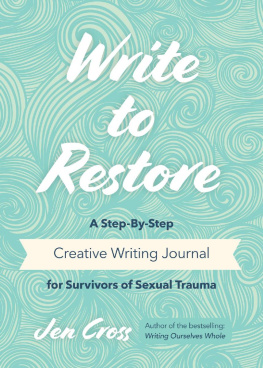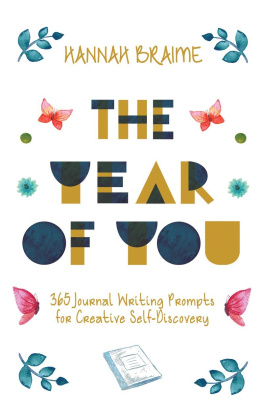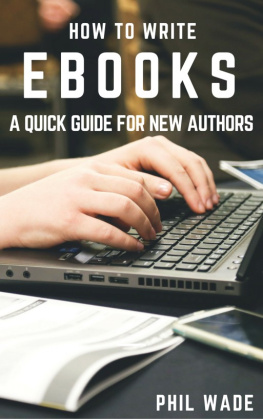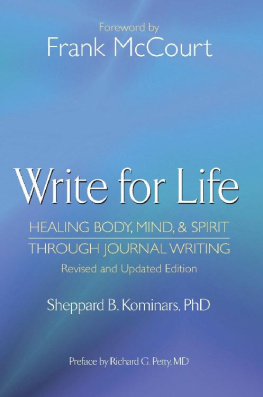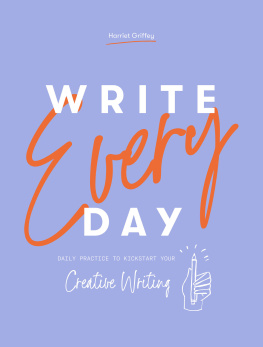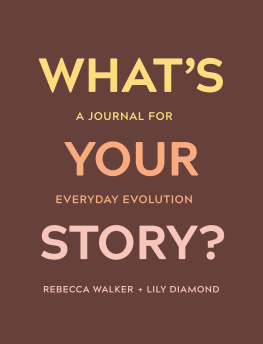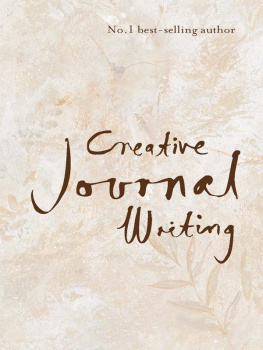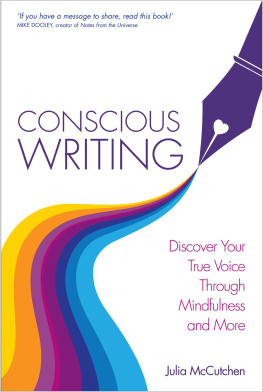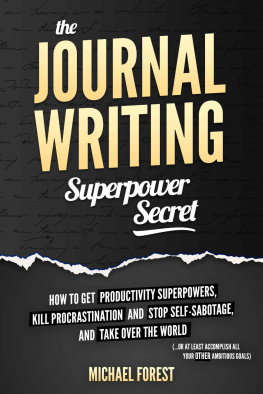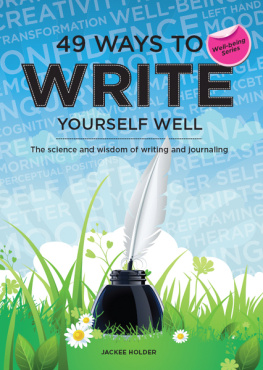Write Your Self
A comprehensive guide to using writing techniques for developing a new understanding of yourself
Stephen Wade
2017 digital version converted and published by
Andrews UK Limited
www.andrewsuk.com
First published in 2017
Copyright 2017 Stephen Wade
The right of Stephen Wade to be identified as the author of this work has been asserted by him in accordance with Copyright, Designs and Patents Act 1998.
All rights reserved. No reproduction, copy or transmission of this publication may be made without written permission. No paragraph of this publication may be reproduced, copied or transmitted save with the written permission or in accordance with the provisions of the Copyright Act 1956 (as amended).
Any person who does any unauthorised act in relation to this publication may be liable to criminal prosecution and civil claims for damage.
Although every effort has been made to ensure the accuracy of the information contained in this guide as of the date of publication, nothing herein should be construed as giving specific treatment advice. This publication is intended to provide general information pertaining to developing these skills.
Originally published in the UK by MX Publishing, 335, Princess Park Manor, Royal Drive, London, N11 3GX
www.mxpublishing.co.uk
Cover design by Brian Belanger
List of Illustrations
1 Your reader biography
2 A created profile
3 Map of imagination
4 Page of a poets notebook
5 Example of a metanarrative
Introduction
Understanding Creativity in Your Life
I rhyme to set the darkness echoing... I rhyme to see myself
Seamus Heaney: North .
We make ourselves through words, and we change ourselves through more words. These words are individuated; we access them in our search for the richness of our life-experience and for the sustenance of our being in the world. As a writer and teacher, I have come to see that many people need help and guidance in the effort to understand that stock of words which lies dormant and which we call upon when we desire to explain who we are and what we want.
This book is not a magical spell for transforming blandness and discontent into something rich and strange. It is about how you can work creative thinking into your life in a way that will give a spiritual, instinctual quality to your life; it is concerned with the ways in which language is your most powerful tool for working out change and renewal. There are no formulae, but there are methods of cultivating what is there, dormant in you and in us all.
In my years as a teacher of creative writing and as a tutor for mature students, I have seen that a desire to get an education, to learn everything as Willy Russells Rita says, is often no more than something else in disguise: a lack of acceptance of what we are. This society instils in us a culture of success. We are told to look beautiful, to move gracefully, to perform so that we do well in interviews; we are told that certain body-shapes are acceptable, and that well-being is central to all quality of living.
There is nothing wrong with all this. Its just that something fundamental is overlooked. This is that element in being human which keeps us content and fulfilled even with the meanest, least materially successful life. This is the pool of silent, latent and perhaps infinite creative pleasure in our imaginations. How do we access this? Is it possible to live without recognising this, and if we try to do so, what are the penalties? People tend to think in terms of potential negativity, yet in fact, the search for those words which will enlighten ourselves with regard to our creative heart is actually fun. The word light-hearted is a simple but accurate definition of the right attitude in this.
What can your words do to change your life?
The words you will use in the course of this book will be your own. They will be words packed with vibrancy and power, maybe latent, waiting to be used because you have not yet made space for them in your life.
- They can heal, often by making you stand back and see a problem for what it is
- They can fulfil your deepest needs for expression
- They can communicate the deepest feelings
- They can make sense of your own world and selfhood
I have seen a look of pleasure and joy on the face of a student of seventy who has just written her first poem in a class. I have watched a group of people work on a film script and discover that they have ideas to offer and that they can command language to influence others. I have seen people learn to trust their words, to feel their way towards seeing the sheer potency of eloquence in a situation. Words heal, words build and words persuade. They can lie and they can steal, but used rightly, words may give us the joy of self-expression and of releasing the knots of complexity which trouble us.
Research has shown that writing about the self and expressing our imagination can reduce stress. People who keep diaries or journals have often recorded how much the friend (the diary page) is like a silent listener, another part of their self, quiet and receptive to certain truths which cannot be uttered in a normal day.
Write Your Self is a manual for encouraging that pool of creativity inside you. If you feel a sense of restlessness, even within a supposedly successful career or in a materialistic lifestyle, you may be certain that there is something else - something inside you like a place that you have known about and heard of but never visited. This manual is an itinerary of that place and a map directing you to a purposeful visit.
You will be asked to start a certain range of habits, all based on self-reflection and on logging aspects of yourself that perhaps you always took for granted. The renewals offered are like those feelings you have on holiday, when you discover a new, fascinating culture and you never want to leave and return to routine. Being truly creative can mean that you have no need of strategies against boredom, because you make a life that leaves no window for boredom. Thomas Gray, the poet, said that to be happy is to be perpetually employed. This means being active in all the best, fun-centred senses. Creativity is play. It means re-visiting not just a place but a playground.
To grasp the real potential of this book, do three things. These are the fundamentals of my course:
- Write a journal.
- Cultivate the poet in your spirit
- Talk about, and write about, the narratories in your life.
The concept of the narratory is central to the book. This concept is a term which describes all the story-making that has made you what you are, from bedtime stories when you were a child to your dream-fantasies as an adult. What I call a narratory is an assemblage of all these as a profile of yourself.
When you have finished the fun tasks in this manual, you will have met a stranger - a likeable stranger. That person will be you.
Finally, what will this book actually do to enrich your life?
- It will provide you with tools for shaping a better self-understanding
- It will show you how language makes sense of the world.
- It will shine a torch into the dark cave of your creative self
- It will empower you as a person in your social or business roles
- It will be fun to do, if you follow the exercises and feedback
1. Taking Stock of the Raw Data
The public enemy number one of creativity is your dislike of yourself
Seeing your present creative potential
You are a human being and therefore your purposes here on earth are unknown, and there is no general rule about happiness. But your first duty is to be happy in your own way. You make your contentment by knowing yourself. As Socrates said, hundreds of years B.C., the beginning of wisdom is to admit that we know nothing. We might know nothing, but we feel thousands of things every day.
Next page

